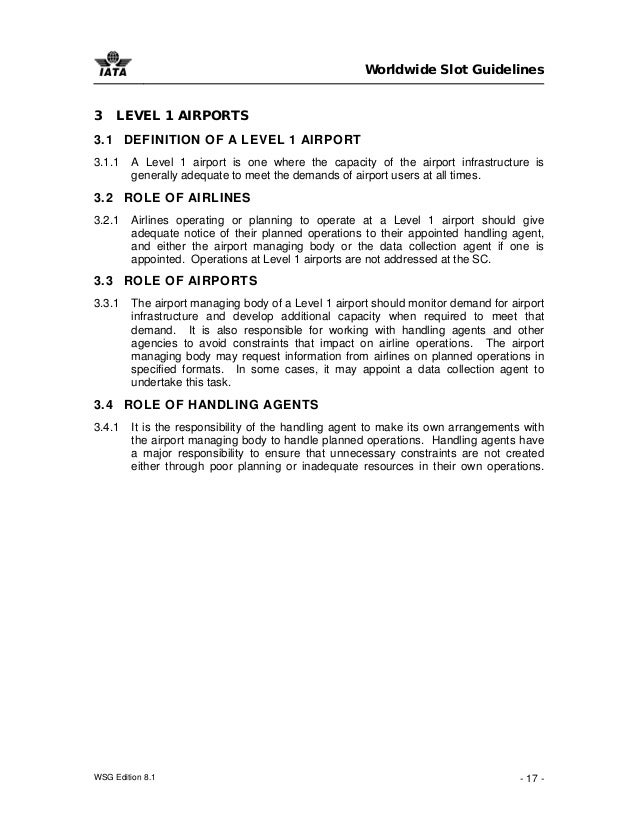Wsg Slot Guidelines


The Worldwide Slot Guidelines (WSG) is published by IATA to provide the global air transport community with a single set of standards for the management of airport slots at coordinated airports and planned operations at facilitated airports. The Worldwide Slot Guidelines (WSG) is published by IATA to provide the global air transport community with a single set of standards for the management of airport slots at coordinated airports and of planned operations at facilitated airports.

Wsg Slot Guidelines 2019
Authors: Hanna Schebesta and Giovanni Sartor
European University Institute
Wsg Slot Guidelines List
Abstract: This case study explores the Worldwide Slot Guidelines (WSG), which represent a set of agreements made under the auspices of the International Air Transport Association (IATA) in order to allocate airport capacity. The right to use airport capacity for the purpose of takeoff and landing operations at airports is commonly called slots, with each airport having a finite amount of airport capacity. Thus, the slot allocation process is one of resource management: the WSG were developed as a global industry standard to address a key constraint in the aviation domain. The actual process of slot allocation is complex and involves organizations and stakeholders at multiple levels, all falling under the umbrella of IATA, a trade association representing 240 airlines. It designates particularly congested airports, creates roles of airport coordinators, and establishes management principles for slot allocation. Because they manage a valuable economic resource, the transparency and independence of coordinators is of particular concern: this has resulted in the institutionalization of a negotiating process to ensure accountability among key stakeholders. Through an examination of the history and key points of change in the process, the WSG case presents an example of private sector coordinated resource management.